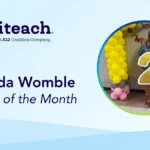Context is King
What is context? According to Dictionary.com, context is: “the circumstances that form the setting for an event, statement, or idea, and in terms of which it can be fully understood and assessed.”
I was in a group study recently where we were talking about context and personal judgments. We were given a statement and then asked to list five words around that statement without any context. After we listed the words we had to say them out loud to the group. An example of a phrase would be, “what do you think about recreational drugs?” We were then given sixty seconds to write out five words and then we read them each in turn to the group. A simple task, but as the exercise continued the topics became more controversial. After going through ten different phrases, we were then asked to tell how we felt about saying a word without any context. The responses were very similar. Each person felt like without being able to explain clearly what they meant by their five words, that they might be misinterpreted. The group facilitator then asked the question, “Why do you fear being misinterpreted.” Again, the responses from the group members were similar, “I don’t want to be thought of as a bad person, or judged incorrectly.”
Taking Things Out of Context
Have you ever heard the phrase, “You are taking me out of context.”? I have heard it, and I have used it. When we review the definition of context, it says, “the circumstances that form the setting for an event, statement, or idea, and in terms of which it can be fully understood and assessed.” This is crucial when we are dealing with conflicts and communicating clearly. How many times have you reacted quickly to a headline or a video on social media, shared that video, made a snap assessment with the little data you had, and then later had a bit of egg on your face because you realize that you didn’t have all of the data to make a truly informed decision? I know I have. In my zeal to be an advocate for anyone marginalized or mistreated, I have been quick to cry “foul!” only later to have to go back and say, “My Bad, I didn’t have all the facts.”
Have you seen the movie “Doubt” with Meryl Streep? According to Wikipedia: “Doubt, A Parable is a 2004 play by John Patrick Shanley. Originally staged off-Broadway at the Manhattan Theatre Club on November 23, 2004, the production transferred to the Walter Kerr Theatre on Broadway in March 2005 and closed on July 2, 2006, after 525 performances and 25 previews. The play won the 2005 Pulitzer Prize for Drama and Tony Award for Best Play. The play was turned into an Academy Award-nominated film starring Meryl Streep as Sister Aloysius and Philip Seymour Hoffman as Father Flynn.”
I never saw the play, but I did see the movie and there is a scene where Philip Seymour Hoffman tells a story about gossip. He uses the illustration of a pillow full of feathers being torn and the wind blowing them about. Once the feathers are out in the wind, there is no retrieving all of them. Watch the clip below…
Why Context is So Important
When we take information and share it without all of the facts, it is really just gossip or rumors and we don’t really know what damage can be done until it is too late. Context is important when seeking justice, for resolving conflict, and for clearly understanding an event – and that is why it is king. There was a time when the phrase “Content is King” was used, and while content and data is important, we need to know all of the content and context in order to make an informed decision.
In an article entitled “Context is Everything” by Professor Paul Bate, from the University College London, he says about context, “In everyday talk we often hear people talking about the importance of not taking something out of context. This is wise advice. Nothing exists, and therefore can be understood, in isolation from its context, for it is context that gives meaning to what we think and do.”
In our world we have a constant flood of information put in front of us by social media, news outlets, and a myriad of other sources. Sharing that content is easy, taking it back is next to impossible. Slowing down and having all the information before making a statement or coming to a conclusion about something will help you out immensely in the long run. So basically, by making context king, you will look like a King or Queen for that matter.
Checking the Facts
If you are curious if something is really true, it is always good to fact check it and do some research before you share it publicly. When it comes to politics, you can use a site like FactCheck.org. They use a variety of sources in order to provide an unbiased review of political facts. According to their site they say, “We systematically go through transcripts and videos looking for statements based on facts. Once we find a statement that we suspect may be inaccurate or misleading, we will engage – or attempt to engage – with the person or organization that is being fact-checked. The burden is on the person or organization making the claim to provide the evidence to support it.”
If you are looking to find out if something is an Urban legend or if something in the news seems like a fake story, you can check it using Snopes.com. Just recently with all of the police drama in the media, there was a rumor that Nickelodeon was going to remove the police dog “Chase” from the show Paw Patrol. It started out as a tongue-in-cheek claim that quickly spread and soon people were posting “Save Chase” memes on their social media pages. A quick fact check on Snopes would have shown that not only was the show not removing Chase, but the quick response by people without checking any facts, only further propagated a rumor.
Become a Teacher. Change Lives.
If you are passionate about impacting the world around you there are few places where you can influence the future as much as a teacher. Teachers have the ability to build students up and set them on a positive course that can have a ripple effect for future generations.
If you are interested in becoming a teacher, check out our online teacher certification process and you could be teaching in a matter of weeks.





